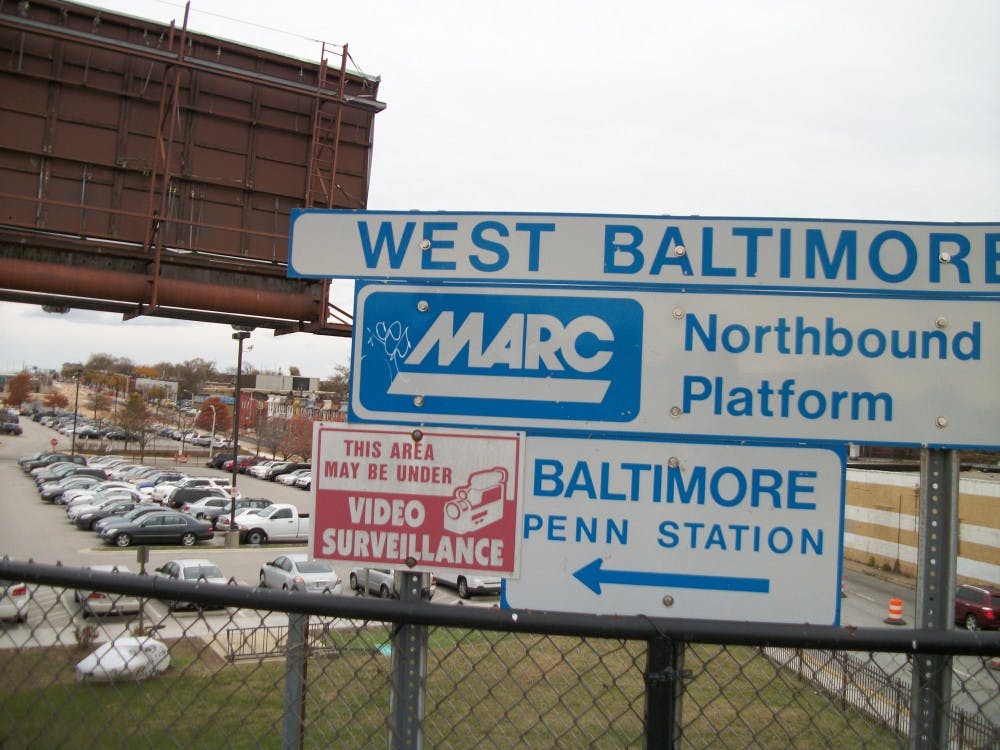As part of the ongoing “Writers LIVE” reading series, the Enoch Pratt Free Library hosted author Lia Purpura for a reading on Thursday, Sept. 26.
Purpura — the writer-in-residence at the University of Maryland, Baltimore County (UMBC) — read excerpts from All the Fierce Tethers, her ninth book and fourth collection of essays.
Her selections touched on the relationships that have formed between humanity and the world that we inhabit, as well as the tensions that arise out of those relationships.
All in all the reading was a thoughtful consideration of our place in the world, as well as a fantastic demonstration of Purpura’s talents as a writer and reader.
Purpura opened the reading by speaking about the importance of community and its influence on her writing.
“I think a lot in this book about what it means to be in community,” she said.
“In one form or another, I have always thought about this, but my eye and attention are seeking out new shapes and expressions for it.”
However, she quickly broadened her examination of society beyond the scope of just humanity.
“A full community to me is taking up with creatures and beings that are non-human as well,” Purpura explained. She then transitioned into discussing “In the Despoiled and Radiant Now,” an essay which centers on the interactions between a group of revelers and the moose that appears outside their cottage.
It’s a beautiful piece that emphasized Purpura’s incredibly lyrical style; if you squint and add a few line breaks, then you would probably mistake it for poetry.
Her imagery is elegant yet matter-of-fact, and she creates a beautifully somber portrait of the relationship between nature and humanity that warns of the potentially irreversible damage that we have inflicted upon the entire Earth.
Purpura then switched her focus to human interactions by reading several of her “Bloodspot” pieces, which all center around places of bloodshed, where the evidence of past violence forces the living and the dead to come together in communion.
In the first “Bloodspot” piece, she juxtaposes East and West Baltimore (divided along York Road) and explores her relationship with the two “sides” of the city and the violence that is born out of that particular division.
The essay is immensely personal, much more than any of the other pieces that she read. Purpura litters every sentence with details about her life in Baltimore, from a list of the various stores that she frequents to her attempts to clean up part of her neighborhood after the 2015 Balitmore Uprising. Her fierce love for the city pervades every line, but she never shies away from the complexities of her relationship with Baltimore.
“Elsewhereing unpoems a place,” Purpura writes.
“And illiterates me.”
Purpura’s final piece — the coda to her “Bloodspot” series — unified all of the themes of her previous selection, pairing humanity’s violence with the death of a mouse at a hawk’s talons.
Again, her understanding and use of language is impeccable, the stilted and fragmented sentences that describe the hawk’s kill evolving into more complex phrases as she subtly juxtaposes it against human brutality. Despite being relatively short, the coda was somber yet beautiful and an excellent finale to this evening of reading.
Afterwards, Purpura answered audience questions about her creative vision and her views on the current state of American poetry and literature.
When asked about her expectations for herself and her works, she emphasized the role that attention plays in artistic inspiration.
“It’s very hard to work freely and with a sense of freedom and intention and alertness of all kinds... I think the task of staying as alert as possible and listening, really, really listening... will continue to be what I am trying to do,” she said.
Later she took the opportunity to restate the importance of community and emphasized her gratitude towards all of the groups that she describes in her works for allowing her to do so.
Purpura’s reading served as a perfect encapsulation of the author and her works. All of the pieces that she read were not only excellently crafted, but they also highlighted the themes of community and environmentalism that she emphasizes so heavily in her work.
Coming out of the event, I felt like I understood Purpura and the values that she weaves throughout her stories, and her skillful reading and open responses to the audience’s questions made the prospect of delving further into her works all the more appealing. All in all, the reading was a resounding success and an excellent addition to the library’s reading series.





